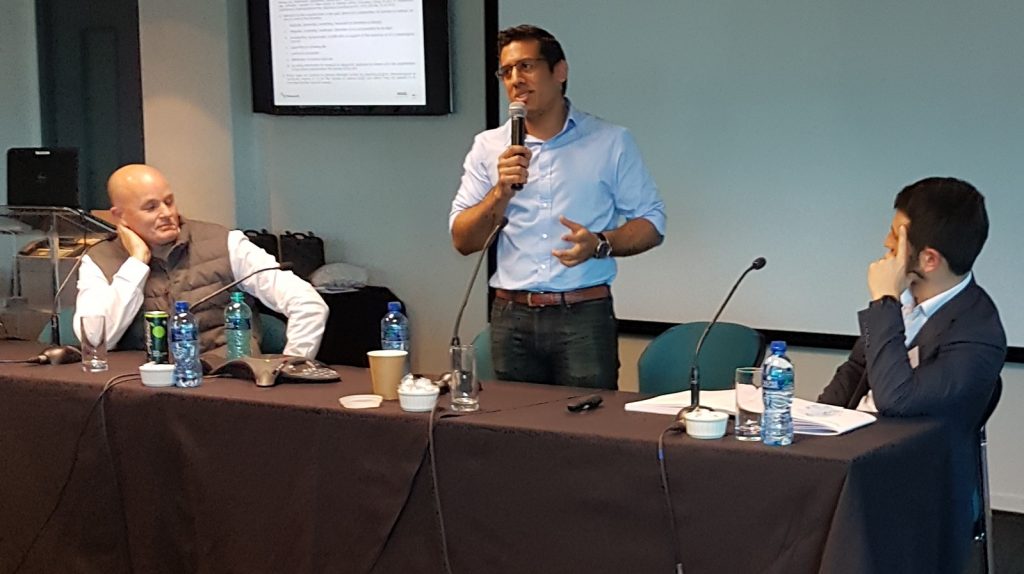HealthTech app and platform developers in South Africa are being held back by rules and regulations, which has seen at least one locally developed platform shift its focus to Kenya, delegates heard at a healthtech seminar held in Cape Town yesterday.
The seminar was hosted by law firm Bowmans and venture capital company Havaic at Bowman’s offices in the city.
No ad to show here.
Neurosurgeon David Roytowski, who is based at Tygerberg Hospital, noted that patients have become more willing than before to accept health-care advice via digital platforms rather than by way of face-to-face advice.
But he pointed out that health-care legislation in South Africa remains a major hurdle to local app and web platform builders.
He singled out a platform developed in South Africa – ConnectMed, which allows patients to conduct consultations via video link – that developers opted to roll out in Kenya because of the legal constraints it faced in SA.
Stephanie Esterhuyse, a partner at Bowmans, said a key challenge for app or platform developers is that the insistence by the National Health Act on the initial appointment between doctor and patient being held face-to-face.
She added that the Health Professions Council of South Africa (HPCSA) has in the past criticised platforms such as Hello Doctor.
‘ConnectMed which allows patients to conduct consultations via video link – opted to roll out in Kenya because of the legal constraints it faced in SA’
In addition she said developers may also be limited in the way that they can provide advertising in their app and web platforms because doctors are required to be compliant with the medical code of ethics code in order to qualify for liability cover.
Julie Oppenheim, a partner at Bowmans, said in addition that innovators will need to consider whether or not an app or web platform constitutes a “medical device” and would need to carry out the requisite testing and approval if it indeed is classed as such.
It follows the coming into force on June 1 of the Medicines and Related Substances Amendment Act, which now includes “medical devices” within its scope. A medical device can include among other things software that is used for the diagnosis and monitoring of a disease or that provides information for diagnostic purposes.
In addition, app and web platform developers would also have to consider the legalities of information transferal and collection.
Oppenheim added that while only certain sections of the Protection of Personal Information (POPI) Act have come into effect, an innovator must still follow common law by requesting the consent of any provider of information. The POPI simply spells out in full the rights and duties of those facilitating and collecting data.
Speaking at the seminar, Recomed founder Sheraan Amod (pictured above, centre) bemoaned the difficulty startups face in competing with established enterprises when it came to the cost of putting in systems to ensure ethical data use and confidentiality.
He said he knew of “R100-million lifestyle businesses” that were not following data rules and added that it appeared that there is little policing of data use. Esterhuyse however responded to say that it is in the ambit of the HPCSA to do so.
Recomed helps patients to book appointments with doctors and Amod said the platform now had 1500 providers listed on it, with 100 000 users accessing the platform per month, with on average 30 000 online appointments made a month.
The company on 3 July launched a system for insurance company Discovery that allows the company’s staff to book a doctor’s appointments on line.
Amod founded personalised publishing company Personera in 2009 before selling it to US firm Impression Works in 2013. After a stint in New York he started Recomed in 2013.
“It’s not something I feel I could have done as a first-time entrepreneur as I had to raise R6-million-plus before the company was investable,” he said.
*Editor’s note: Ventureburn incorrectly had Recomed’s figures as 1500 users per month (rather than 100 000) and the number of online appointments as 30 000 to date – when it is in fact 30 000 a month. We regret the error.
Featured image: Healthcent CEO Andrew Davies, Recomed CEO Sheraan Amod and Bowmans partner Joshua Janks.
